Everything you need to know about becoming an open water diver!
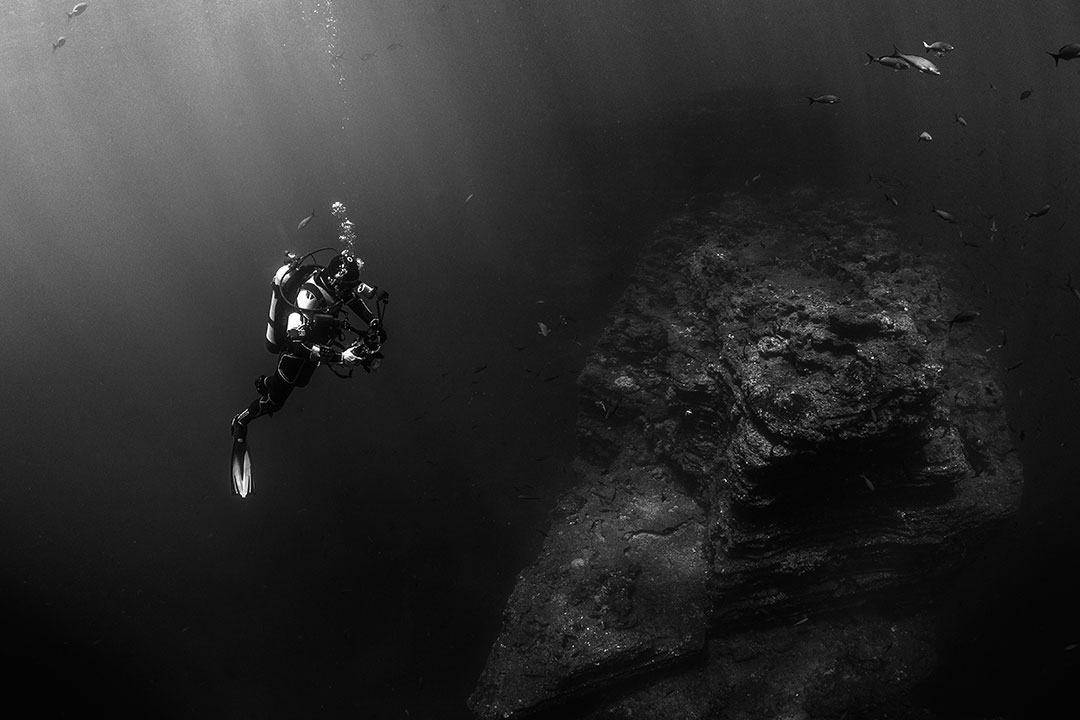
Growing up with a Father who is a diving instructor and lifelong fan of scuba lends a certain inevitability to the direction your adventures will take you. I was always going to be forced underwater whether I liked it or not and luckily for me I absolutely adore it.
It’s the closest you will ever get to flying and that feeling of complete weightlessness, for me it’s almost like meditation.
I did my Open Water Diver certification (OW) 13 years ago as soon as I turned 12 (the minimum age to certify) and then spent the next 10 years diving in the cold murky conditions of New Zealand’s wild East coast.
Table of Contents
Beginners Guide To Becoming An Open Water Diver
At the age of 22 I packed my bags and headed for the sunnier climes of Thailand. I spent 6 months training as a Divemaster, the first rung of the professional diving ladder before you become an Instructor.
I learnt invaluable lessons as I watched hundreds of people begin their adventure and emerge from their first dive with, what I call, ‘The Crazy Eyes’. You could see that they were mask over fins in love with it from the outset.
If scuba is something you have thought about, considered or toyed with the idea of, then read on and hopefully I can answer some of the questions you might have and tell you how to make the most of the experience.
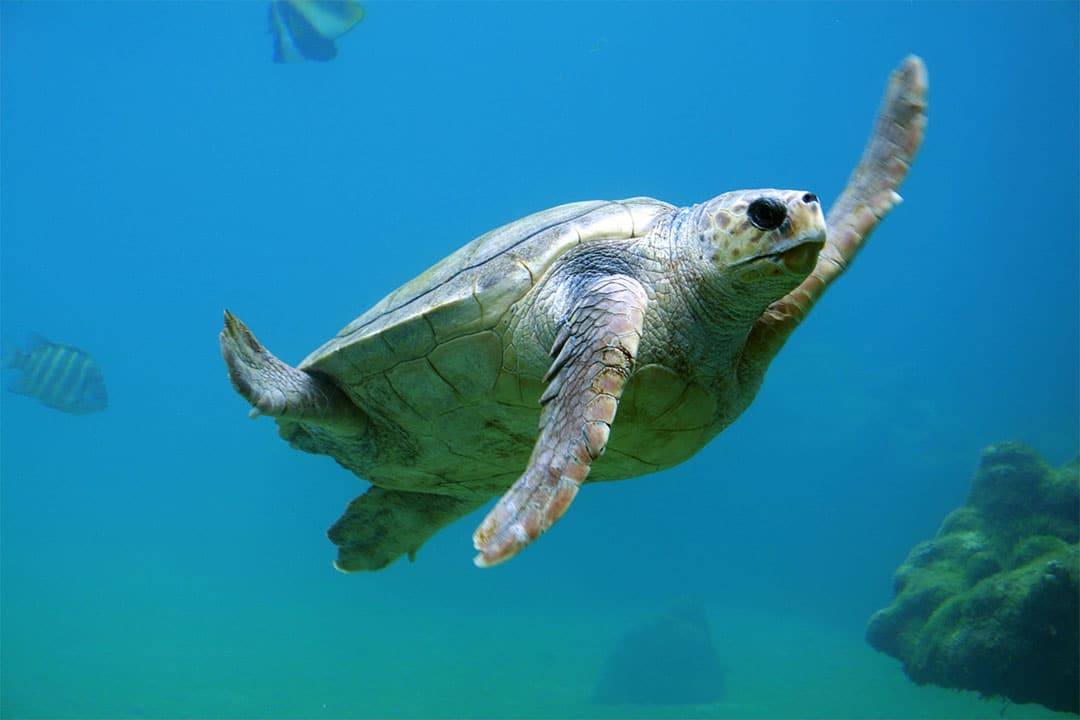
Where Should I Learn?
My Open Water Diver learning experience is probably fairly unique, the majority of people will learn while travelling or on holiday somewhere warm. This is a great way to do it because it’s simple, fairly relaxed and doesn’t require a lengthy commitment.
The course is condensed, usually into 3 days, and you will be diving in good conditions on popular sites with dedicated instructors.
In a world with Tripadvisor and the like, we are inundated with recommendations and it can be hard to pick just one school to entrust with your experience.
What I would say is, look for somewhere that is on the beach and has groups of no more than 6 students.
Some places will also offer free accommodation for every day that you dive with them which is great if you are winging it with your planning.
There will be a million gushing reviews for most schools because truthfully, no matter where you are, you will probably have an amazing time.
You might also choose depending on the organisation you want to certify with. Most people have heard of PADI but there are others such as BSAC, SSI (popular in South East Asia) and SDI, they don’t vary hugely at a beginner level so, unless you have a strong preference, you could choose any as they’re all reputable and established.
A 5* rated school will have an instructor able to teach from any of them so it’s totally up to you. They also recognise each other’s qualifications, so if you choose to progress you won’t be restricted to just one organisation.
It’s a good idea to think about the kind of diver you are likely to be when you leave. Will you be a warm weather, ‘while I’m on holiday’ diver or will you be a drysuit, under the ice kind of diver? Which ever it is, it’s a good idea to learn in the conditions you are likely to experience in future so you are prepared.
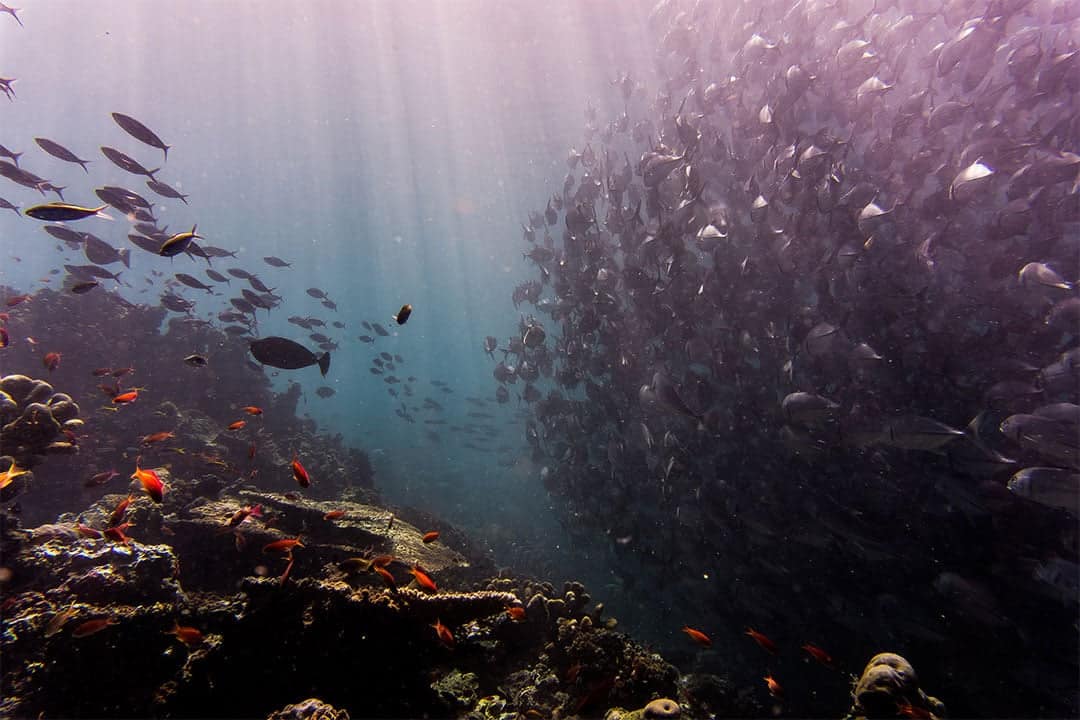
The Course Itself
The course will be a mixture of book based learning and practical skills. First of all there will be a theory session that will involve an exam and then you will spend time in a pool (usually) or the shallows of a bay getting used to your gear and practicing skills.
Following this you will be taken out into ‘open water’ (the ocean) for four dives to practice what you have learned and experience everything the ocean has to offer.
After this, assuming you have passed all your tests, you will be signed off as an Open Water Diver and receive your certification card.
This condensed way of learning can feel like a bit of a whirlwind, I cannot encourage you enough to ask questions. Your instructor does this job because they love diving and want to share that with others. They will be happy to talk til the cows come home about their experiences.
If you have any concerns then always raise them and remember that everyone will have a certain number of butterflies in their belly before they jump in the water for the first time.
It will all feel a bit strange and you will sound like Darth Vader when you breathe. It’s important to keep your breathing long and slow as you descend, equalising all the way (your instructor will explain that).
Sometimes panic can overcome a person and send them bolting for the surface. I had one student who experienced this but after we talked it through on the surface and she agreed to try again.
By breathing evenly, maintaining eye contact and holding hands we were able to descend the second time and afterward she told me that dive was the best thing she had ever done.
All is not lost if you are feeling anxious or you can’t do it first try, never feel silly or burdensome, your Instructors are trained to help and want to see you succeed.
A common thought process seems to be ‘air is up there, I can breather air, I’ll be safe up there’, dry land still feels like ‘home’ and underwater will feel foreign. It’s important to remember that almost any problem can be fixed underwater, this is why we have buddies and professionals on hand to help with anything that might go wrong.
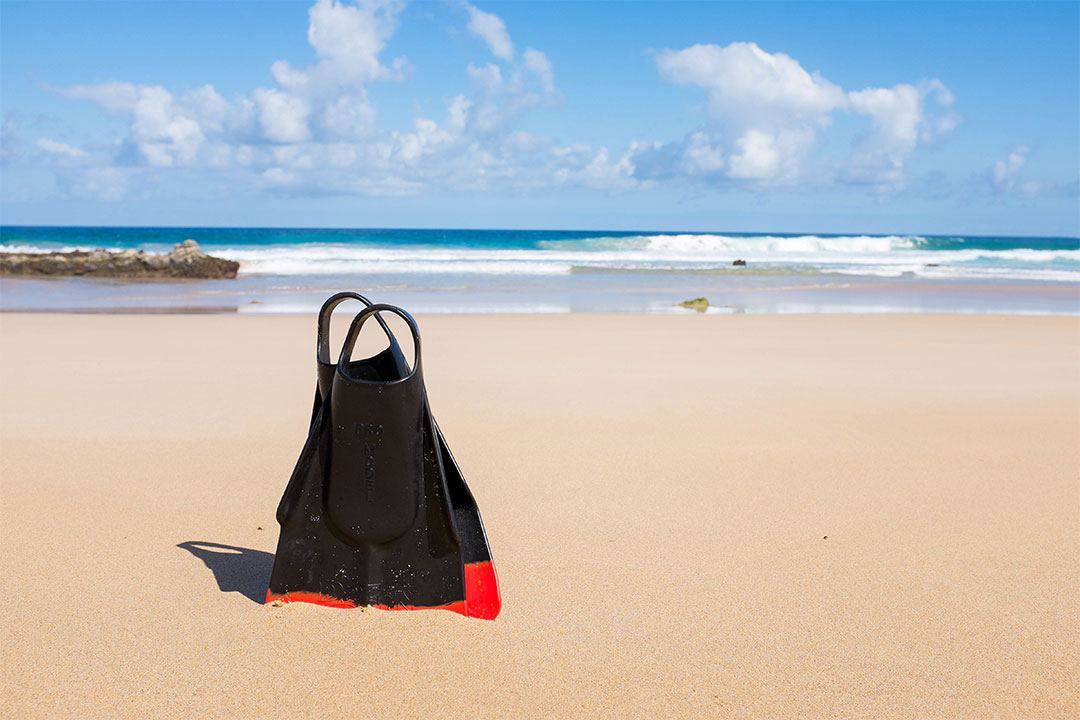
Is Diving Dangerous?
In a word, no. You’re much more likely to die sky diving than you are scuba diving, on the whole it’s an incredibly safe adventure sport.
The stuff that is more likely to make you un-well is sun-stroke, dehydration, scrapes and things you can control for by taking care of yourself in and out of the water. Make sure you drink plenty of fluids (not beer), stay out of the sun and don’t touch the coral.
You will be with an expert who will make sure you stay safe underwater and teach you how to check your gear and take care of your ears. Always see a doctor and get his permission to dive if you have any kind of respiratory problems or chronic conditions.
This doesn’t preclude you from taking part but the dive school will want to know about it and see a certificate from your doctor. If you don’t have one they will ask you to get one, which can be difficult if you’re in a remote location without access to proper health services.
Using a product like a dive computer or dive watch can really help too.
After The Course
Once you have completed your course there is a good chance you will have caught the bug. I’ve had people ask me how to do Divemaster training after their very first dive.
The worst thing is when people have only booked 3 days at that location and can’t stay any longer to do any more diving. I have seen people cancel the rest of their holiday plans in order to stay a do more diving.
It’s best to give yourself more time than necessary in case this happens to you.
Most dive staff will be earning a commission when they sell courses and gear, personally I hate this ‘sales’ approach in just about any other industry. Diving is an exception because it really is in your best interests to take your training further.
An Advanced Open Water qualification (AOW) will allow you to go to deeper dive sites (where cool things live) and gear that fits well can be the difference between a good dive and a bad one.
I’m not saying that you should become a Course Director and buy a full kit…but AOW and your own mask are good things to have in your arsenal.
Your instructor will be able to help you choose a mask that fits your face (very important), plus it can be used for snorkelling when you find yourself on other beautiful beaches during your adventures.
I could write endlessly and expansively about diving but I don’t want to bore you. I will leave you with some Do’s and Don’ts to think about during your course and if there is anything else you want to know then please leave a question in the comments.
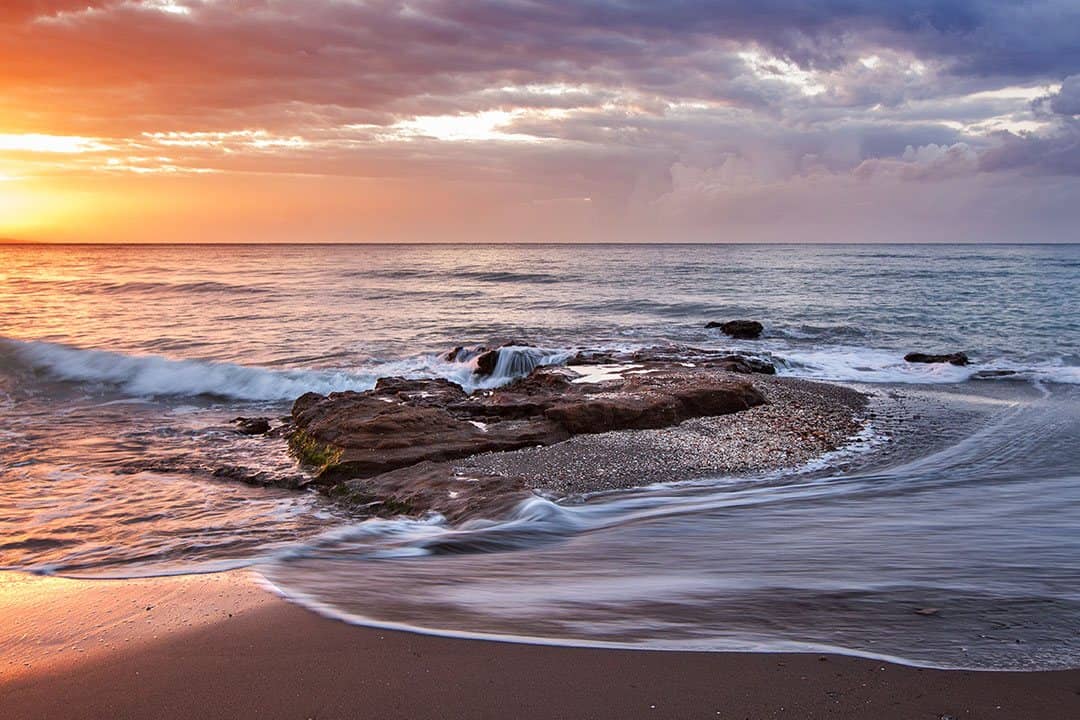
Don’t:
- Touch things underwater. The eco-system is very delicate and won’t appreciate being battered by your fins.
- Call them flippers (that’s a dolphin), they are called fins.
- Put your mask on top of your head. This is a signal of a diver in distress, instead pull it down around your neck when not in use.
- Apply sunscreen just before going in the water. Most of your standard brands aren’t coral friendly and will damage the reef.
- Take a GoPro. I cannot tell you how aggravating it is watching a student being distracted by their camera instead of learning to be a good diver first. What you capture is likely to be of poor quality, it takes a lot of practice to become a great videographer.
Do:
- Ask a tonne of questions and not just to the Instructor, talk to any assistants on your course or even other people in the bar or on the boat. This is a great way to learn.
- Make sure you really nail the physics behind diving. This will help you understand buoyancy, and as soon as you master that it becomes even more enjoyable.
- Listen to the instructor and keep them in your sight when you’re underwater. Losing someone means the whole group will have to surface in order to find you.
- Stay calm when you have to remove your mask. We’ve all been swimming without one before so don’t let this freak you out, it’s actually not that scary.
- Remember to enjoy yourself! You’re in a place with lots of other like-minded, adventurous people. Get to know your new dive friends and relish the opportunity to learn a new skill that gives you access to the 70% of the world you’ve been missing out on.

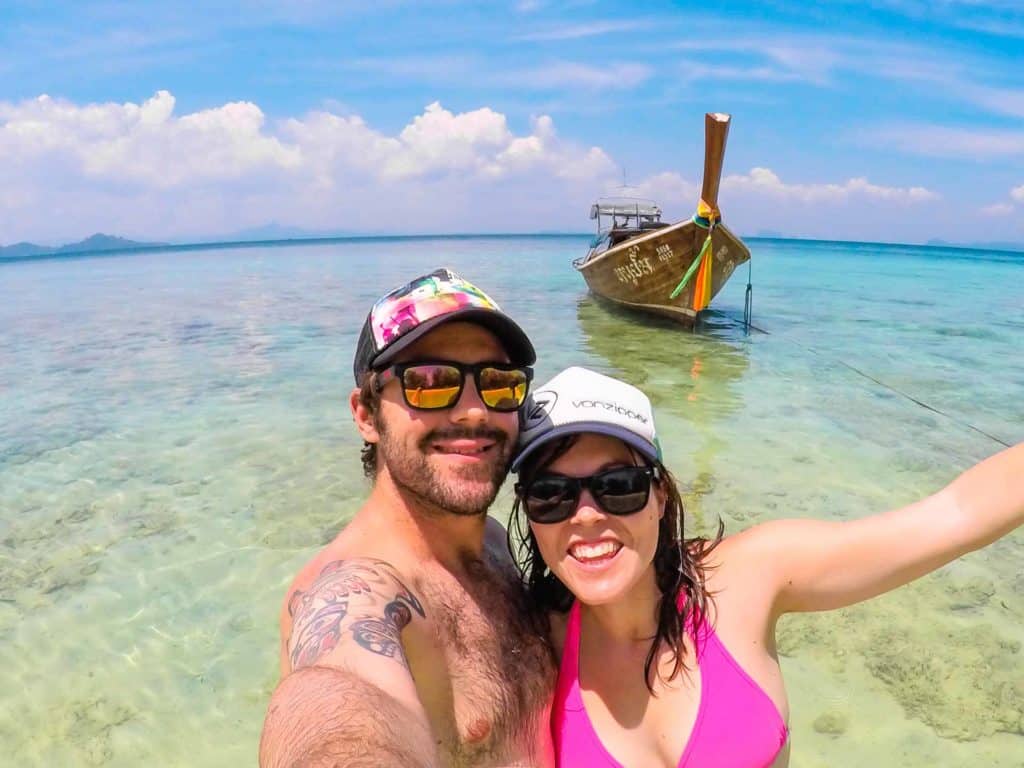
14 thoughts on “Tips On Becoming An Open Water Diver”
Hello,
First thanks for this useful post!
I really want to learn how to dive and will go to the Cham Islands in Vietnam to do my Open Water. I saw 2 “schools” with different approach.
One doing all the lessons on the first day + swimming pool. The other a bit a theory everyday. (Swimming pool the first day).
What do you recommend? All theory first or spread through the 3 days? I don’t have much more details, but i thought it would be good to learn theory while practicing, what’s your thoughts?
Thanks a lot, and soon is my turn!
Hi Fabien, sorry to hijack your question but I am an instructor in Thailand and I just wanted to mention why there are 2 different approaches to teaching the Open Water course! There different agencies and they will have different standards. For example, PADI requires you to finish a section (there are 5 sections) of the theory before going for that particular section’s practical skills. (eg. Section 1 video, Section 1 Theory, Section 1 Quiz, Section 1 Swimming Pool session, then Section 2 video, Section 2 Theory etc.) Whereas, other agencies may be a bit more flexible with their structure (eg. complete all theory, then pool, then dives, or break them up – it’s more up to the instructor!). Hope this helps!
I just want to thank for sharing this amazing post. I just want to add, that your instructor plays an important role in your learning stage. So follow their instructions carefully and stay safe while diving.
Thank you for your comment. You are definitely right about the instructor. It is always important to look around and ask the instructors questions about how long they have been an instructor for, how many dives they have done and where they got certified.
That’s exactly what I am looking for. Thanks for this post. I love your blog and all the ideas you shared about outdoor experiences. Keep it up!
Thank you do much. Bella wrote a great article for us. We are both diving lover and love being underwater, Happy travels
Becoming a Diver was one of the greatest things that I have ever done. It has opened up an amazing world that most people on Earth never get to experience. My OW certification led to several others, including NITROX, Rescue, Divemaster, and PSD. I love it!
Couldn’t agree more with you Bruce. Being underwater is amazing. We are the same as you. We got our OW and then became addicted. We haven’t got our divemaster yet but can’t wait to take it further. 🙂
The first day i went for my Open Water course i was so stressful. But the first second i could breath underwater i forgot everything and i fell like i was in a dream. You forgot all your problem, and i completly agree when you say that diving is like meditation.
After 1 month on Open Water, i get my Advanced to go deeper and do more fun dive.
I really miss it when i cannot do diving.
I will never regret to have been through my fear, Diving is maybe the most wonderful experience i have ever did !
That’s so wonderful to hear! It’s definitely a life long love for a lot of people. You should consider doing a Divemaster course perhaps! There is another article here https://www.nomadasaurus.com/how-to-become-divemaster-in-thailand/
Learning to dive was one of the best things I have ever done! I learnt in the very cold murky waters of a flooded gravel pit in the UK – I barely had any visibility and think I saw one fish…. but we did get to swim around a submerged double decker bus which was quite good fun.
And it made my first experience of diving in warm clear waters pretty special!
Learning in a poor environment makes you appreciate the good ones so much more! How cool to dive on a bus though, I always think diving on a wreck that isn’t a boat is really cool.
I didn’t realise that sunscreen can be harmful to the reef… oops. I’ll be keeping that in mind for future dives! I just quickly checked and it seems like PADI has some good recommendations for safe brands to use: https://www2.padi.com/blog/2013/06/27/coral-reef-safe-sunscreen-for-scuba-diving/
My only other suggestion is to go with your gut when it comes to safety. Yes, usually the dive instructors are experts but it is possible to get beginners or instructors that take a few too many risks for your comfort. My poor partner ran out of air twice during his recent dive certification course and while the instructor was quick to help ensure his safety, they really shouldn’t have stayed down there when he was so low on air already. He says he wanted to go along with what the instructor felt was safe, but ultimately it’s ok to be a bit pushy if it’s your oxygen access at stake!
I’m sorry your partner had to experience that. It can be difficult to gauge air usage of your customers sometimes, especially as newbies and guys tend to use A LOT of air very quickly but he should never be running out. You’re right, if something doesn’t feel right then always speak up.